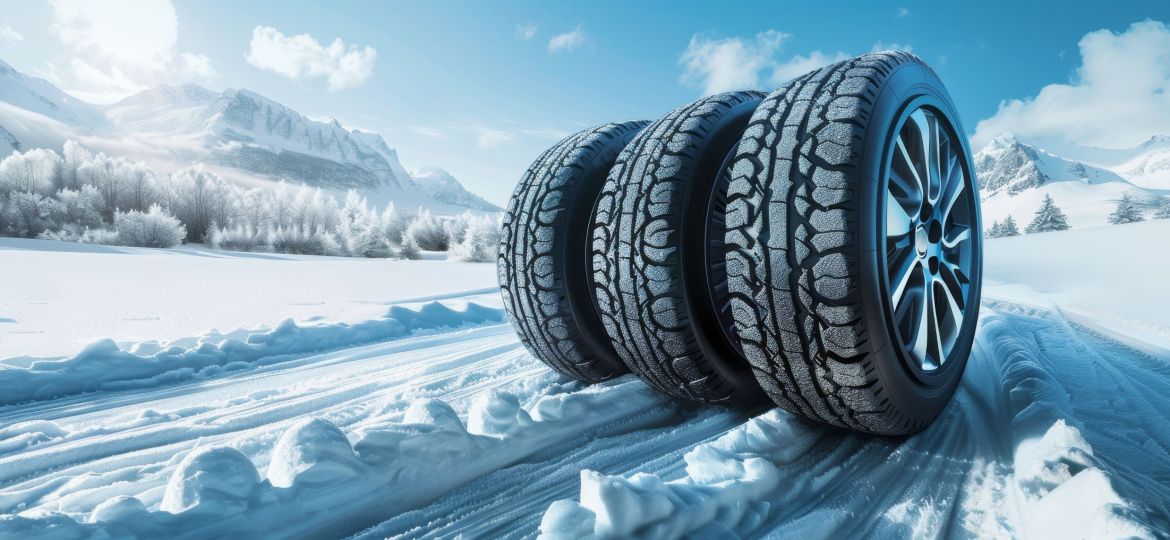
Pros & Cons of Winter Tires
Winter weather can be tough on your vehicle, especially if you’re driving with all-season tires. Just as we adjust our routines to cope with extreme weather, our vehicles need adjustments too—most notably in the form of winter tires. Also known as snow tires, these are specifically designed to provide extra traction and stability on wet, icy, and snowy roads.
Key Features of High-Quality Winter Tires
Winter tires are built to handle the unique challenges of cold-weather driving. They offer superior grip and braking control, ensuring a safer ride. The three standout features that differentiate winter tires from all-season tires are:
-
Tread Rubber: Designed to remain flexible in low temperatures.
-
Tread Depth: Deeper grooves enhance traction for acceleration and braking.
-
Tread Patterns: Special designs improve grip and driving stability.
Unlike standard tires, winter tires excel at maintaining traction, improving acceleration, and enhancing braking performance on snow-covered or slushy roads. The softer rubber compounds help grip slippery surfaces, while deeper treads dig into snow, and specialized patterns channel water away to prevent hydroplaning.
Pros of Using Winter Tires
Superior Traction
Winter roads are significantly more challenging than dry summer streets. Swapping out all-season tires for winter ones enhances grip and control, thanks to the deeper tread patterns that bite into snow and ice for a more stable driving experience.
Improved Braking
Braking on icy roads can be dangerous, as standard tires may struggle to stop effectively. Winter tires provide the necessary grip to prevent sliding, allowing for safer and more reliable braking. However, it’s still crucial to drive cautiously on winter roads.
Extended Tire Lifespan
Since winter tires are used only during the colder months (typically 5-6 months a year), they last longer—often up to three or four seasons. This means you won’t need to replace them annually, helping you save on long-term tire costs.
Enhanced Safety
Your safety and that of your passengers should always be the top priority. While all-season tires might seem convenient, they don’t provide the same level of security during winter conditions. Installing high-quality winter tires ensures better handling and reduces accident risks, making them a worthwhile investment.
Cons of Using Winter Tires
Faster Wear and Tear
Winter tires are made with softer rubber to enhance grip, but this also means they wear out more quickly than all-season tires, especially if used on dry, warm pavement.
Limited Versatility
While winter tires excel in snow and ice, they are less effective on dry roads. Their specialized tread patterns may not offer the same level of performance and handling on non-winter surfaces.
Higher Risk of Damage
The deeper tread and softer composition of winter tires make them more vulnerable to punctures and damage from potholes and rough roads. Driving cautiously and avoiding road hazards can help minimize the risk.
Increased Cost
Winter tires tend to be more expensive than standard all-season options due to their specialized materials and design. High-end brands come with an even higher price tag. To maximize their value, use them for multiple seasons and store them properly when not in use.
Tips for Choosing the Right Winter Tires
Now that you understand the importance of winter tires, here are some tips to help you select the best set for your vehicle:
-
Know Your Tire Size – Check your vehicle’s manual for the correct tire specifications.
-
Consider Road Conditions – Choose tires suited for the terrain you’ll be driving on.
-
Compare Quality and Brands – Not all winter tires perform the same; research the best options.
-
Opt for Deep Grooves – Larger grooves offer better grip on snow and ice.
-
Avoid Mixing and Matching – Always install a complete set of four winter tires for balanced handling.
-
Stay Within Budget – Shop early in the season to find the best deals.
Final Thoughts
No tire is perfect, and even the best winter tires have pros and cons. However, if you live in an area prone to harsh winters, they’re a crucial investment for safe and efficient driving. To save money, consider purchasing winter tires before peak season. If you need guidance, reach out to our experts at ABC Tire Company—we’re here to help you make the best choice for your vehicle.
